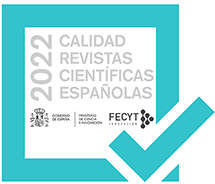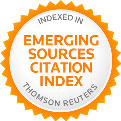Supported teaching autonomy support. [Enseñanza apoyada en el soporte de autonomía].
Resumen
The findings obtained from the study and research into the consequences of applying determined teaching styles has led to a growing interest in this area among the scientific community. The student-centered and constructivist learning environments which enable students to gain a significant understanding through their own efforts has grown in importance compared with the traditional learning environment based on the transfer of learning by teachers (Oguz, 2013). In the context of the constructivist approach, students create their own knowledge by actively participating in the learning process (Wang, 2011), and by giving importance to the learners’ autonomy. In these environments of interaction, the teacher becomes the learning facilitator, planning tasks and supporting responsibility for learning (Koç, 2006), providing students with options, helping them make their own decisions and solve problems for themselves. Consequently, this new focus provides students with opportunities to ask their own questions, and create their own learning concepts and strategies based on existing knowledge. The teacher has to accept students’ autonomy and their enterprising spirit, and support them in this sense. In the context of this constructivist focus, one of the the main objectives of education is to promote students’ autonomy (Öztürk, 2011). (Full text)
http://dx.doi.org/10.5232/ricyde2016.043ed
References/referencias
Buff, A.; Reusser, K.; Rakoczy, K., & Pauli, C. (2011). Activating positive affective experiences in the classroom: “Nice to have” or something more? Learning and Instruction, 21(3), 452-466.
Deci, E. L., & Ryan, R. (1987). The support of autonomy and the control of behavior. Journal of Personality and Social Psychology, 53(6), 1024-1037.
http://dx.doi.org/10.1037/0022-3514.53.6.1024
Dunn, R. S., & Dunn, K. J. (1979). Learning styles/teaching styles: Should they... can they... be matched. Educational leadership, 36(4), 238-244.
Hagger, M. S.; Chatzisarantis, N. L. D.; Hein, V.; Pihu, M.; Soós, I., & Karsai, I. (2007). The perceived autonomy support scale for exercise settings (PASSES): Development, validity and cross-cultural invariance in young people. Psychology of Sport and Exercise, 8, 632-653.
http://dx.doi.org/10.1016/j.psychsport.2006.09.001
Karagözoğlu, Ş. (2009). Nursing students’ level of autonomy: A study from Turkey. Nurse Education Today, 29(2), 176-187. http://dx.doi.org/10.1016/j.nedt.2008.08.002
Koç, G. (2006). Yapılandırmacı sınıflarda öğretmen-öğre- nen rolleri ve etkileşim sistemi. Eğitim ve Bilim, 31(142), 56-64.
Oguz, A. (2013). Developing a Scale for Learner Autonomy Support. Educational Sciences: Theory and Practice, 13(4), 2187-2194.
Öztürk, İ. H. (2011). Curriculum reform and teacher auto- nomy in Turkey: The case of the history teaching. International Journal of Instruction, 4(2), 113-128.
Ryan, R. M., & Deci, E. L. (2000). Self-determination theory and the facilitation of intrinsic motivation, social development, and well-being. American Psychologist, 55, 68-78.
http://dx.doi.org/10.1037/0003-066X.55.1.68
Reeve, J. (2006). Teachers as facilitators: What autonomy-supportive teachers do and why their students benefit. The Elementary School Journal, 106, 225-236.
http://dx.doi.org/10.1086/501484
Reeve, J. (2009). Why teachers adopt a controlling motivating style toward students and how they can become more autonomy supportive. Educational Psychologist, 44(3), 159-175.
http://dx.doi.org/10.1080/00461520903028990
Sierens, E.; Vansteenkiste, M.; Goossens, L.; Soenens, B., & Dochy, F. (2009). The synergistic relationship of perceived autonomy support and structure in the prediction of self‐regulated learning. British Journal of Educational Psychology, 79(1), 57-68.
http://dx.doi.org/10.1348/000709908X304398
Silk, J. S.; Morris, A. S.; Kanaya, T., & Steinberg, L. (2003). Psychological control and autonomy granting: Opposite ends of a continuum or distinct constructs? Journal of Research on Adolescence, 13(1), 113-128.
Soenens, B.; Vansteenkiste, M.; Lens, W.; Luyckx, K.; Goossens, L.; Beyers, W., & Ryan, R. M. (2007). Conceptualizing parental autonomy support: Adolescent perceptions of promotion of independence versus promotion of volitional functioning. Developmental psychology, 43(3), 633.
http://dx.doi.org/10.1037/0012-1649.43.3.633
Standage, M.; Duda, J. L., & Ntoumanis, N. (2006). Students’ motivational processes and their relationship to teacher ratings in school physical education: A self-determination theory approach. Research Quarterly for Exercise and Sport, 77, 100-110.
http://dx.doi.org/10.1080/02701367.2006.10599336
Vallerand, R. J. (1997). Toward a hierarchical model of intrinsic and extrinsic motivation. En M. P. Zanna (Ed.), Advances in experimental social psychology (pp. 271-360). New York: Academic Press.
Vansteenkiste, M.; Sierens, E.; Goossens, L.; Soenens, B.; Dochy, F.; Mouratidis, A., ... & Beyers, W. (2012). Identifying configurations of perceived teacher autonomy support and structure: Associations with self-regulated learning, motivation and problem behavior. Learning and Instruction, 22(6), 431-439.
http://dx.doi.org/10.1016/j.learninstruc.2012.04.002
Vansteenkiste, M.; Williams, G. C., & Resnicow, K. (2012). Toward systematic integration between Self-Determination Theory and Motivational Interviewing as examples of top-down and bottom-up intervention development: Autonomy or volition as a fundamental theoretical principle. International Journal of Behavioral Nutrition and Physical Activity, 9(1), 23.
http://dx.doi.org/10.1186/1479-5868-9-23
Wang, P. (2011). Constructivism and learner autonomy in foreign language teaching and learning: To what extent does theory inform practice? Theory and Practice in Language Studies, 1(3), 273-277.
Palabras clave/key words
Texto completo/Full Text:
PDF (English)------------------------ 0 -------------------------
RICYDE. Revista Internacional de Ciencias del Deporte
![]()

Publisher: Ramón Cantó Alcaraz
ISSN:1885-3137 - Periodicidad Trimestral / Quarterly

